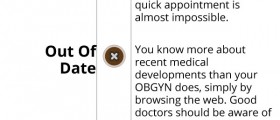
Because your doctor or midwife will hopefully remain with you throughout your pregnancy and perhaps at birth, it is very important to find one that you feel you can trust, and one that you "click" with. For those who are already pregnant and have not found a doctor or midwife they like yet, no is the time to start interviewing birth professionals to decide which one is right for you. Have you already found a healthcare provider? That makes your first prenatal appointment even easier. Most doctors and midwives do not see women for prenatal appointments before eight weeks gestation, unless of course you are experiencing symptoms that require medical assistance. But some are very booked up, so there is no harm in calling them to schedule your appointment just after you find out that you are pregnant. At your very first prenatal appointment, your chosen healthcare provider will take your medical history.
They will also ask about your family's medical history, whether any of your relatives have genetically passed-on conditions, and whether you are taking any medication. Apart from that, you will be discussing the date of your last menstrual period, when you found out you were pregnant, and any symptoms you have had since conceiving. You may have an ultrasound, or have your baby's heartbeat listened to with a doppler. Your healthcare provider may weigh you and is very likely to take your blood pressure. If you have chosen an OB as your healthcare provider, it is probably that they will immediately suggest a range of prenatal tests and blood tests. Midwives may also suggest blood tests, and often carry out urine tests. But at your first prenatal appointment, perhaps your healthcare provider's most important task is answering your questions. Pregnancy is unlike anything else you have ever experienced, and every woman is bound to have tons of questions. Don't be afraid to ask whatever you want doctors and midwives.
















Your thoughts on this
Loading...